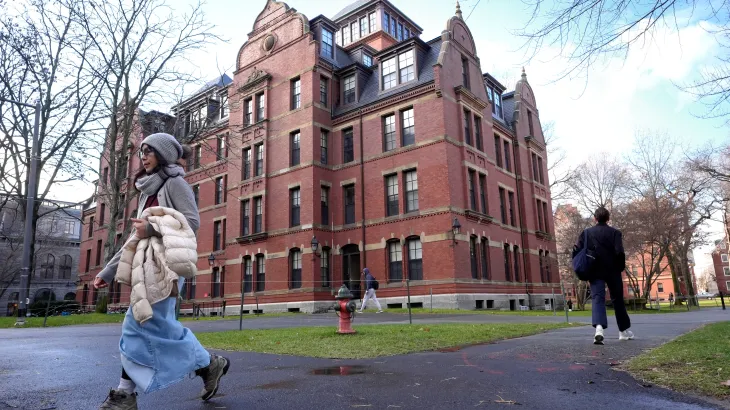Harvard University is no stranger to controversy, but the latest dispute with the Trump administration has sent shockwaves through the academic and business communities. On Friday, Harvard took legal action to challenge the federal government’s abrupt decision to revoke its authority to enroll international students under the F-1 visa program. The move, initiated by Department of Homeland Security (DHS) Secretary Kristi Noem, was positioned as a response to what the administration described as an unsafe campus environment, citing alleged harassment and physical assaults, particularly against Jewish students, by what DHS called “anti-American, pro-terrorist agitators”.
For Harvard, the stakes are high. International students make up over a quarter of its student body, nearly 6,800 in the 2024-2025 academic year, and the loss of this group would be financially and academically devastating. The DHS directive, announced Thursday, not only barred Harvard from enrolling new international students but also required current foreign students to transfer to other institutions or risk losing their legal immigration status. The university’s response was swift: within a day, it filed a federal lawsuit, arguing that the revocation was unlawful and a retaliatory act that violated the First Amendment and other federal statutes.
Harvard’s lawsuit is about more than just academic freedom. The university’s ability to attract and retain international students is a cornerstone of its financial model. Foreign students often pay full tuition, which is a significant revenue stream for the institution. Losing this group would not only disrupt campus life but also impact the university’s bottom line and its global reputation as a leader in higher education. Harvard’s multibillion-dollar endowment and its standing as a top-tier research institution are both closely tied to the diversity and quality of its student body.
The Trump administration’s move is also a warning to other universities. Secretary Noem explicitly stated that the Harvard ban should serve as a caution to all educational institutions to “get your act together” or face similar consequences. This rhetoric suggests that the administration is prepared to escalate its scrutiny of universities, potentially affecting a broad swath of the higher education sector.
Harvard’s lawsuit, filed in federal court in Boston, argues that the government’s actions are a “flagrant infringement” of the university’s First Amendment rights and an overreach of federal authority. The university contends that the administration’s decision is retaliation for Harvard’s refusal to comply with certain information requests regarding student visas and for its stance on campus protests and academic independence.
The legal battle comes amid an ongoing feud between Harvard and the Trump administration. In recent weeks, the administration has already suspended billions in federal funding to the university, accusing it of insufficiently addressing antisemitism amid pro-Palestinian demonstrations. The two sides appear locked in a struggle over the balance between federal oversight and institutional autonomy.
While Harvard itself is a private, nonprofit institution and does not trade on public markets, the broader implications for the education sector are notable. For-profit education companies and institutions with significant international student populations could see increased regulatory risk if the administration’s approach is adopted more widely. The uncertainty could also affect university endowments, which are major players in global financial markets, and could lead to a chilling effect on international student recruitment across the United States.
Harvard is not backing down. The university has pledged to fight the DHS decision in court and has already secured a temporary injunction preventing the immediate termination of current international students’ legal status while the lawsuit proceeds. This legal maneuvering buys time for both Harvard and its students, but the outcome is far from certain.
For now, the message to other universities is clear, the Trump administration is willing to use its regulatory power to enforce its vision of campus conduct and national security. Harvard’s response, legal, public, and unyielding, sets the stage for a high-profile battle that will shape the future of international education in America.

